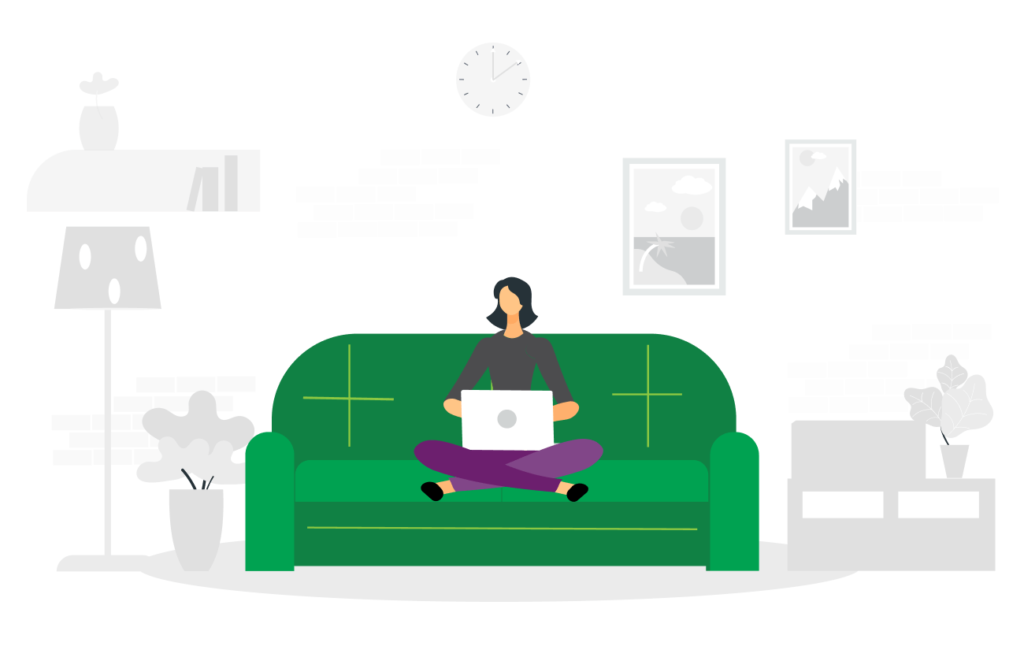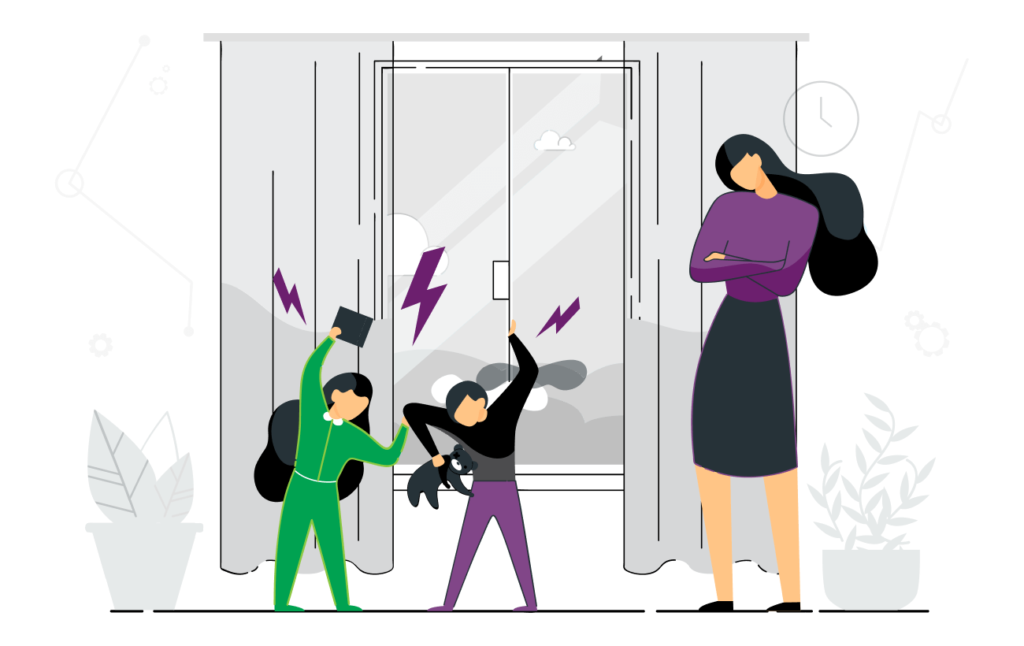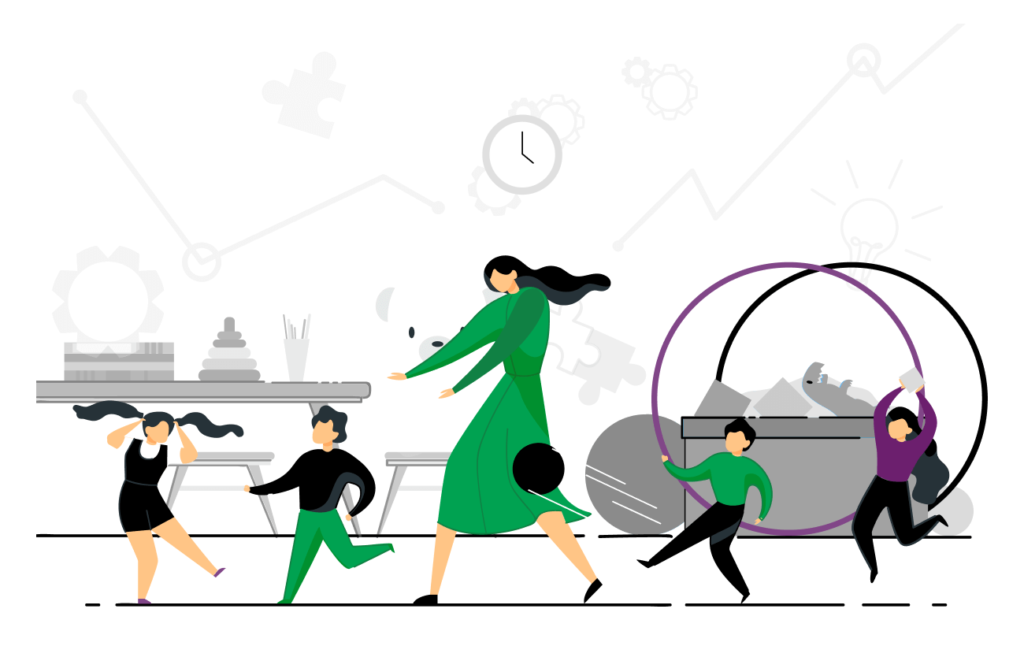When Staying Home for COVID-19 Puts You at Risk for Abuse

Health officials advise that home is the safest place to be as COVID-19 spreads. But that may not be true for people experiencing domestic violence, sometimes known as intimate partner violence (IPV), or the children exposed to it. Indeed, the United Nations Population Fund report predicts at least 15 million additional cases of IPV will occur as a result of COVID-19 lockdowns.
Why Is Domestic Violence on the Rise?
There are several reasons why the coronavirus pandemic has sparked a rise in IPV, including but not limited to:
Social Isolation

Being trapped at home with an abuser can make abuse—and not just physical abuse—worse. Abuse is about power and control, and social isolation is one of the most common tactics used by abusers to control their victims. As a result, while sheltering in place, abusers may try to stop their partners from getting medical care or further isolate them from others by using scare tactics.
Social isolation can also make it easier for an abuser to use “gaslighting” as a way of gaining even more control over his/her intimate partner. Gaslighting is a very effective form of emotional abuse in which the victim questions their own perception of reality – their feelings, instincts, and sanity. The abuser may say to the victim, “You’re crazy” or “You’re too sensitive” or “You don’t know what you’re talking about – you’re just making stuff up.” Over time, without access to their usual support system, the victim may start to second-guess themselves, eventually relying on the abuser to define their sense of reality. This, in turn, makes the victim more likely to stay in the abusive relationship because they lose trust in themselves.
Increased Stress

In crises and disasters, stressors abound. With a pandemic, there is an underlying fear of the unknown, which leaves those impacted in a constant state of risk and anxiety. Economic stress or joblessness can also inflict great stress on a relationship, as can the pressures of 24/7 child care and home schooling. The stress imposed by the latter can be compounded by the acting out behaviors children may exhibit as a result of the dramatic shift in their normal school-based routines and their own level of anxiety.
Decreased Access to Resources

In addition to reduced access to support from extended family, child care agencies and schools, and religious or community groups during the coronavirus pandemic, legal services may be curtailed, and courts may be on a limited schedule. Likewise, local shelters that normally provide support services and a safe haven for victims of domestic violence may have had to close or limit their hours because of health concerns related to staff illness or the risks posed by the close quarters of their dorm-like shelter facilities.
Alcohol/Substance Use and Abuse

Alcohol sales have skyrocketed during the COVID-19 pandemic, increasing more than 200 percent by some accounts. Many people turn to alcohol and drug use during times of crisis to “take the edge off,” but these substances can also fuel aggressive behaviors.
What Can You Do If You’re a Victim?
For support—including help creating a safety plan—call the National Domestic Violence Hotline at 800-799-7233. If you’re unable to speak freely, text LOVEIS to 22522. If you’re in imminent danger, call 911 to connect with local law enforcement agents.
CDPHP members may contact our Behavioral Health Access Center toll-free at 1-888-320-9584 between 8 a.m. and 6 p.m. on weekdays. If you require urgent after-hours support, call our crisis hotline at 1-855-293-0785.
It’s crucial to have a safety plan ready if you’re a victim of domestic violence and under a stay-at-home order. That plan should include how to leave your home in the safest possible way. You should also keep contact information close at hand for:
- A neighbor, friend, or relative you can go to for help in a crisis.
- A nearby emergency shelter.
As mentioned earlier, though, shelters may be full during the pandemic, so you may need to be prepared to sleep in a motel or at the house of a friend or relative, at least for a while. If you do remain at home, try to stay in touch with supportive friends and family by phone calls or online, if it’s safe. Reaching out can help ease some of the stress of this very difficult time.
To the degree possible, practice good self-care. As much as possible, try to stick to your daily routine and make time for exercise and sleep. Caring for yourself can make a big difference in how you feel and your ability to cope with your situation.
What Can You Do If Someone You Know Is Being Abused?
If someone you care about is in an abusive relationship, you may not be able to offer face-to-face support during the pandemic, but don’t let that deter you from reaching out by phone or online, or even in-person from a safe distance outdoors. Encourage your loved one to develop a safety plan. Let them know that abuse is never their fault. Empower them to make good decisions, and tell them that you’re available to listen and help as much as circumstances allow.
Sources: National Domestic Violence Hotline; World Health Organization
 The Daily Dose
The Daily Dose
Comments are closed.